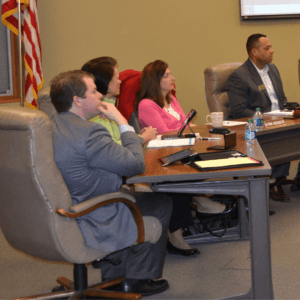Locally elected school boards should have the flexibility to make decisions that are best for their communities’ unique needs.
- School districts need the flexibility to respond to the unique educational and fiscal impact the COVID-19 pandemic has had on their communities.
- As the state receives congressionally approved federal relief funding that is intended to address learning loss among students, it is essential that local school districts have the flexibility to use those dollars in ways that best fit local needs. One-size-fits-all state programs are an inefficient approach that does not represent the diverse needs of many districts.
- In a democracy, the majority rules; super-majority requirements give disproportionate influence to a minority of voters.
The Legislature should ensure local flexibility and prioritize local decision-making as school districts address the pandemic’s unique toll on student learning.
 Some legislators have suggested reducing school districts’ state funding allotments in ways that would force districts to use their fund balances for routine operating expenses. However, school districts — especially those that pay Robin Hood recapture to the state — need fund balances to manage cash flow at various points in the fiscal year. Forcing districts to use fund balances for operating costs would also make it more difficult to manage emergencies and could also hurt districts’ credit ratings, which would raise borrowing costs for taxpayers.
Some legislators have suggested reducing school districts’ state funding allotments in ways that would force districts to use their fund balances for routine operating expenses. However, school districts — especially those that pay Robin Hood recapture to the state — need fund balances to manage cash flow at various points in the fiscal year. Forcing districts to use fund balances for operating costs would also make it more difficult to manage emergencies and could also hurt districts’ credit ratings, which would raise borrowing costs for taxpayers.

Unfunded state mandates cost school districts millions of dollars per year. These mandates range from state-mandated trainings to testing to teacher incentive pay to required disciplinary protocols. Each unfunded mandate leaves districts with fewer discretionary dollars.
